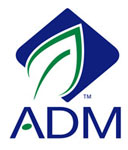Politicians, celebrities, race car drivers and investors all helped to make 2006 a year to remember for biofuels. Here’s just a few of the top stories on DomesticFuel this year.
 January 31 – During his State of the Union address, President Bush uttered the catch phrase that marked a tipping point in the history of biofuels in America. “America is addicted to oil.” The president also brought fame to a mostly unknown plant called switchgrass. “We will also fund additional research in cutting edge methods of producing ethanol, not just from corn, but from wood chips and stalks or switch grass.”
January 31 – During his State of the Union address, President Bush uttered the catch phrase that marked a tipping point in the history of biofuels in America. “America is addicted to oil.” The president also brought fame to a mostly unknown plant called switchgrass. “We will also fund additional research in cutting edge methods of producing ethanol, not just from corn, but from wood chips and stalks or switch grass.”
 February 5 – The star-studded National Biodiesel Conference kicked off in San Diego with a Super Bowl party. Luke Perry, Darryl Hannah and, of course, Willie Nelson all put in appearances at the event, which was covered from start to finish by DomesticFuel parent company ZimmComm on the Biodiesel Conference Blog.
February 5 – The star-studded National Biodiesel Conference kicked off in San Diego with a Super Bowl party. Luke Perry, Darryl Hannah and, of course, Willie Nelson all put in appearances at the event, which was covered from start to finish by DomesticFuel parent company ZimmComm on the Biodiesel Conference Blog.

March 26 – The first day of the Indy Racing League’s official switch to 10 percent ethanol fuel turned tragic when #17 Ethanol car driver Paul Dana was killed in a pre-race crash. Dana was instrumental in getting the IRL to switch to ethanol and his loss was a significant blow to people in both the racing and ethanol industries.
April 4 – Rahal Letterman Racing, the Indy Racing League and the ethanol industry announced the new #17 Ethanol car driver would be Jeff Simmons, an IRL Indy Pro Series driver from Connecticut.
April 25 – President Bush addressed the Renewable Fuels Summit 2006 in Washington, DC. Bush heavily promoted domestic fuels, both ethanol which he says has “the largest potential for immediate growth,” and biodiesel, which is why he “signed into law the first ever federal tax credit for biodiesel producers.”
May 26 – Approximately 1,200 people attended the grand opening celebration for the new $80 million Frontier Ethanol – the 100th ethanol plant to begin operations in the United States.
 May 28 – The Indianapolis 500 runs for the first time on a 10 percent ethanol blend and begins to prepare for the switch to 100 percent fuel-grade ethanol in 2007.
May 28 – The Indianapolis 500 runs for the first time on a 10 percent ethanol blend and begins to prepare for the switch to 100 percent fuel-grade ethanol in 2007.
August 9-11 – The 19th annual American Coalition for Ethanol conference is held in Kansas City, featuring a record number of attendees.

October 10-12 – The U.S. Departments of Agriculture and Energy jointly sponsor the Advancing Renewable Energy Conference in St. Louis. President Bush told the group of about 1500 attending the event, “I like the idea of promoting a fuel that relies upon our farmers.”
2006 was also a year of record production and demand for biofuels, new legislation in dozens of states to encourage both, and lots of new alternative fuel vehicle introductions.
Look for lots more in 2007.








 The newest scratch ticket lottery game in Kansas is offering an E85 vehicle as a grand prize, according to a
The newest scratch ticket lottery game in Kansas is offering an E85 vehicle as a grand prize, according to a  The Idaho Legislature will be considering proposals in the coming new year to make ethanol and biodiesel more attractive to distributors in that state.
The Idaho Legislature will be considering proposals in the coming new year to make ethanol and biodiesel more attractive to distributors in that state. 2007 has been a pretty good year for
2007 has been a pretty good year for  By the end of the year, Iowa will have produced a record 1.5 billion gallons of ethanol, more than one quarter of all the ethanol produced in the nation this year.
By the end of the year, Iowa will have produced a record 1.5 billion gallons of ethanol, more than one quarter of all the ethanol produced in the nation this year. The friendly folks at the Ethanol Promotion and Information Council would like to wish everyone “Gallons of Good Tidings” for the holiday season and the new year.
The friendly folks at the Ethanol Promotion and Information Council would like to wish everyone “Gallons of Good Tidings” for the holiday season and the new year. One of two Florida ethanol plants planned by
One of two Florida ethanol plants planned by